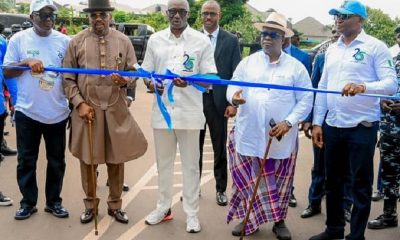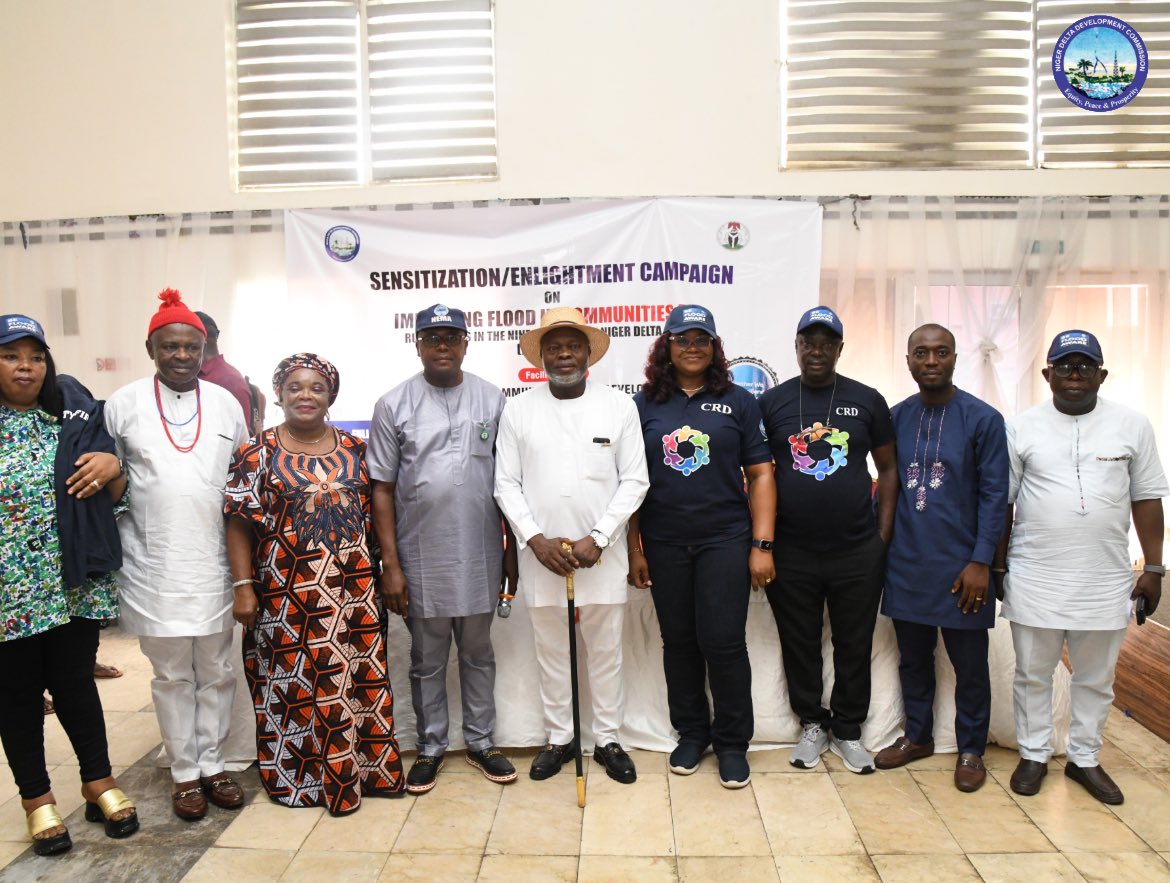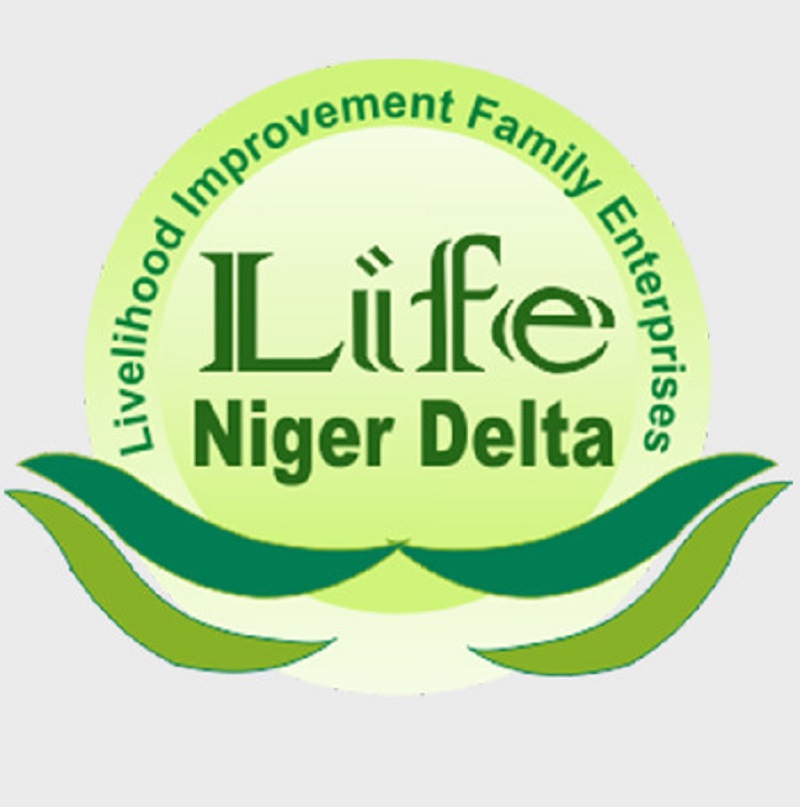Feature/OPED
NDDC: When Public Policy and Public Good Combine To Bring Development
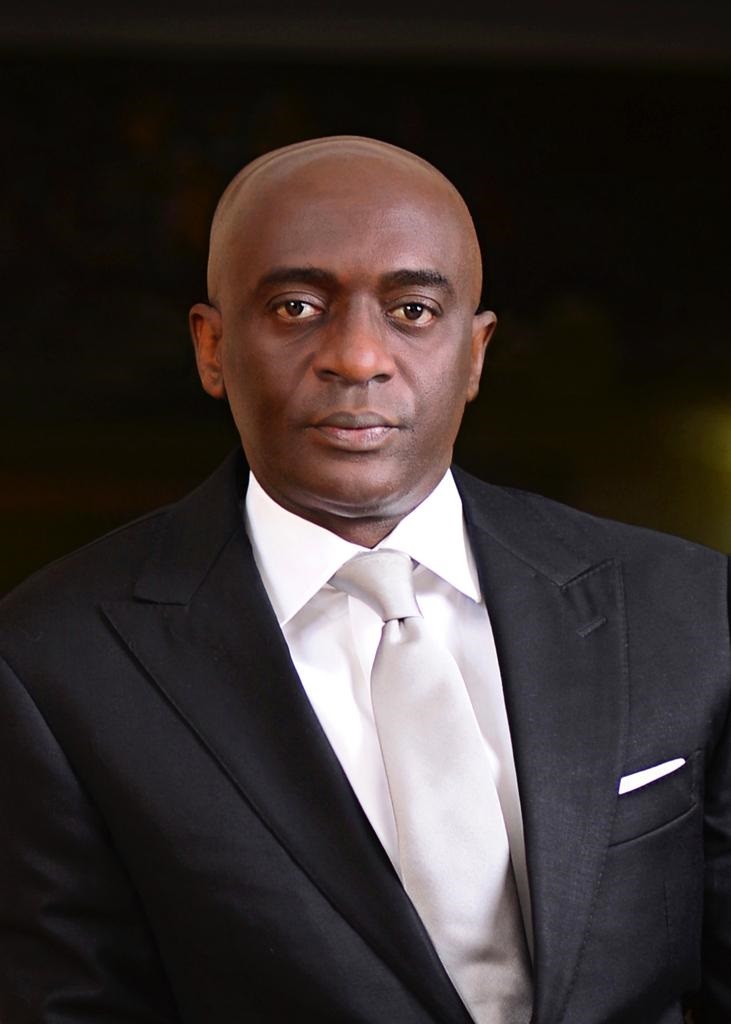
By Jerome-Mario Utomi
Public policy, going by experts’ definition, is an institutionalized proposal or a decided set of elements like laws, regulations, guidelines and actions to solve or address relevant and real-world problems, guided by a conception and often implemented by programs and encompasses what the government does, or does not do to solve a problem in society.
Correspondingly, policymaking and problem-solving are what citizens expect from their elected and appointed government representatives once they have taken office, and are entrusted with serving their constituency.
Given the foregoing, developing public policy decisions for the good of those in, and on behalf of those outside the government (public) has become not only a culture but vital for public officers and all levels of government — municipal, state, and federal Ministries, Parastatals, Commissions and agencies among others. They met this culture when they joined the service, guided by the culture while in service and ultimately transferred this culture to their successors in office. It is imperative to note that the root of public policy in our nation, just as in other parts of the world, is deep and there is something massive and positive about it.
A veritable example is the people-oriented and sustained development-minded actions and policies of the Mr Chiedu Ebie-led Governing Board and Management of the Niger Delta Development Commission (NDDC), a federal government agency established by former Nigerian president, Olusegun Obasanjo in 2000, with the sole mandate of developing the oil-rich Niger Delta region of Nigeria.
Upon inauguration in November 2023, the NDDC board, to the admiration of all stakeholders, came up with well-thought-out initiatives and projects. Prominent among these projects, programmes and initiatives are the building of partnerships, lighting up the region, initiating sustainable livelihood, improving youth capacity and skills base, executing efficient and cost-effective projects, including Project Hope for Renewed Hope, reducing carbon emission, and improving peace and security.
While the above initiatives and policies remain admirable, there is another policy by the Governing Board and Management that this piece would underline as something massive and positive.
Some months ago, the Commission’s leadership, during the presentation of its N1.91 trillion 2024 budget to the Senate Committee on NDDC, emphasized priorities such as security, job creation, youth and women empowerment, social welfare, education and the profound initiative to raise N1 trillion, from development and commercial banks, for the completion of 1,006 legacy projects spread across the region. These projects were reportedly in specific areas such as roads, bridges, electricity, schools, hospitals, shore protection and reclamation, among others.
Aside from the overt awareness that when abandoned projects are completed and put into use, it saves the nation from wastage, boosts national assets and promotes socio-economic development of the people, region and the nation in general, there are, however, other covert reasons that render this present development as both newsy and commendable. Students of history is familiar with the origin of project abandonment and neglect of national assets in Nigeria and the politics that fuel this will agree that the NDDC governing board and management are on the path to ending an ugly ‘culture’ that has over the years held down the region’s development.
If this policy framework is achieved as envisaged, it is abundantly clear that future historians and, of course, development professionals shall refer to the present board and management as a bunch that restored new order in the region and hope to the people. Beyond what future historians may say, there is equally the need to highlight why this piece is fixated on NDDC’s departure from the old order, and at the very moment on a mission to tackle a challenge that has not only become a culture of a sort but has its origin deeply rooted in history that predates the nation’s independence in October 1960.
Beginning with the historical undertone as to why Nigerians and successive leaderships in the country daily demonstrate a lackadaisical attitude towards national assets and see nothing wrong with project desertion, history has it that during colonial rule, Nigerians developed the anti-colonial belief that public property is no man’s property. This belief, according to reports, was intended to fight colonialism but it continued after independence and brought insensitivity to government property as well as ineptitude, nepotism, neglect of duty, etc.; it gravely explains as to the reckless way in which government property and projects are handled.
Indeed, what the above information tells us is that both project abandonment and public asset neglect in the country are two striking human tragedies, and the pain they inflict on the nation is deepened by the realisation that they were avoidable.
Beyond this understanding, there are reasons to believe that this piece is not alone in the understanding that NDDC leadership is doing something positively new.
A few days ago, the Pan Niger Delta Development Forum, PANDEF, commended the leadership of the Niger Delta Development Commission, NDDC, for its commitment to transparency, accountability, and infrastructure development in the region.
Giving the commendation during a courtesy visit by a delegation from the umbrella organization of Niger Delta people at the NDDC headquarters in Port Harcourt, PANDEF’s National Chairman, Ambassador Godknows Igali, lauded the Commission’s leadership, describing it as visionary and result-driven.
His words: “We have never seen a leadership team like this, and we thank President Bola Ahmed Tinubu for his support. Your interventions in infrastructure, particularly the Benin-Ore Road and the Light Up Niger Delta initiative, are commendable. Your youth development programmes are also making a significant impact.”
He further assured the Commission of PANDEF’s continued collaboration, reiterating the group’s role as the voice of the Niger Delta people in the civic space: “We believe in working closely with you and reaffirm our support for your administration. We urge Mr. President, the governors, and other stakeholders to provide you with the necessary tools to succeed,” he concluded.
No doubt, some books teach how to build a house, how to repair an engine and how to write a book, but there are no codified books on how to build a region, society or nation. Conversely, nation-building, in my view, depends on ceaseless creative and far-reaching public policies designed and implemented by well-forsighted leaders- a case in point is the NDDC’s resolve to complete abandoned projects that presently litter its mandate states.
This author, therefore, believes that closing ranks to learn from NDDC’s latest template is not only important but eminently desirable for other agencies and Commissions in the country as “we cannot continue to do one thing repeatedly and be expecting a different result-or tackling our societal challenges with the same mentality used when the problems were created”
Finally, while it is obvious that it is a season of public good for the Niger Delta region and its people, for me, the positive public policies so far generated by the Governing Board/Management of NDDC align with the famous words of Martin Luther King Jnr: “Human progress never rolls in on the wheels of inevitability but is achieved through the tireless efforts and the persistent work of dedicated individuals who are willing to be coworkers with God”
Utomi, a media specialist, writes from Lagos, Nigeria. He can be reached via Je*********@***oo.com/08032725
Feature/OPED
Brent’s Jump Collides with CBN Easing, Exposes Policy-lag Arbitrage
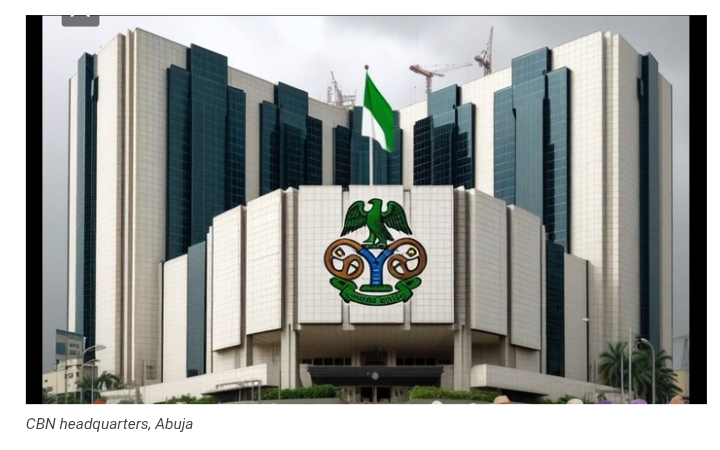
Nigeria is entering a timing-sensitive macro set-up as the oil complex reprices disruption risk and the US dollar firms. Brent moved violently this week, settling at $77.74 on 02 March, up 6.68% on the day, after trading as high as $82.37 before settling around $78.07 on 3 March. For Nigeria, the immediate hook is the overlap with domestic policy: the Central Bank of Nigeria (CBN) has just cut its Monetary Policy Rate (MPR) by 50 basis points to 26.50%, whilst headline inflation is still 15.10% year on year in January.
“Investors often talk about Nigeria as an oil story, but the market response is frequently a timing story,” said David Barrett, Chief Executive Officer, EBC Financial Group (UK) Ltd. “When the pass-through clock runs ahead of the policy clock, inflation risk, and United States Dollar (USD) demand can show up before any oil benefit is felt in day-to-day liquidity.”
Policy and Pricing Regime Shift: One Shock, Different Clocks
EBC Financial Group (“EBC”) frames Nigeria’s current set-up as “policy-lag arbitrage”: the same external energy shock can hit domestic costs, FX liquidity, and monetary transmission on different timelines. A risk premium that begins in crude can quickly show up in delivered costs through freight and insurance, and EBC notes that downstream pressure has been visible in refined markets, with jet fuel and diesel cash premiums hitting multi-year highs.
Market Impact: Oil Support is Conditional, Pass-through is Not
EBC points out that higher crude is not automatically supportive of the naira in the short run because “oil buffer” depends on how quickly external receipts translate into market-clearing USD liquidity. Recent price action illustrates the sensitivity: the naira was quoted at 1,344 per dollar on the official market on 19 February, compared with 1,357 a week earlier, whilst street trading was cited around 1,385.
At the same time, Nigeria’s inflation channel can move quickly even during disinflation: headline inflation eased to 15.10% in January from 15.15% in December, and food inflation slowed to 8.89% from 10.84%, but energy-led transport and logistics costs can reintroduce pressure if the risk premium persists. EBC also points to a broader Nigeria-specific reality: the economy grew 4.07% year on year in 4Q25, with the oil sector expanding 6.79% and non-oil 3.99%, whilst average daily oil production slipped to 1.58 million bpd from 1.64 million bpd in 3Q25. That mix supports external-balance potential, but it also underscores why the domestic liquidity benefit can arrive with a lag.
Nigeria’s Buffer Looks Stronger, but It Does Not Eliminate Sequencing Risk
EBC sees that near-term external resilience is improving. The CBN Governor said gross external reserves rose to USD 50.45 billion as of 16 February 2026, equivalent to 9.68 months of import cover for goods and services. Even so, EBC views the market’s focus as pragmatic: in a risk-off tape, investors tend to price the order of transmission, not the eventual balance-of-payments benefit.
In the near term, EBC expects attention to rotate to scheduled energy and policy signposts that can confirm whether the current repricing is a short, violent adjustment or a more durable regime shift, including the U.S. Energy Information Administration (EIA) Short-Term Energy Outlook (10 March 2026), OPEC’s Monthly Oil Market Report (11 March 2026), and the U.S. Federal Reserve meeting (17 to 18 March 2026). On the domestic calendar, the CBN’s published schedule points to the next Monetary Policy Committee meeting on 19 to 20 May 2026.
Risk Frame: The Market Prices the Lag, Not the Headline
EBC cautions that outcomes are asymmetric. A rapid de-escalation could compress the crude risk premium quickly, but once freight, insurance, and hedging behaviour adjust, second-round effects can linger through inflation uncertainty and a more persistent USD bid.
“Oil can act as a shock absorber for Nigeria, but only when the liquidity channel is working,” Barrett added. “If USD conditions tighten first and domestic pass-through accelerates, the market prices the lag, not the headline oil price.”
Brent remains an anchor instrument for tracking this timing risk because it links energy-led inflation expectations, USD liquidity, and emerging-market risk appetite in one market. EBC Commodities offering provides access to Brent Crude Spot (XBRUSD) via its trading platform for following energy-driven macro volatility through a single instrument.
Feature/OPED
Gen Alpha: Africa’s Digital Architects, Not Your Target Audience

By Emma Kendrick Cox
This year, the eldest Gen Alpha turns 16.
That means they aren’t just the future of our work anymore. They are officially calling for a seat at the table, and they’ve brought their own chairs. And if you’re still calling this generation born between 2010 and 2025 the iPad generation, then I hate to break it to you, but you’re already obsolete. To the uninitiated, they look like a screen-addicted mystery. To those of us paying attention, they are the most sophisticated, commercially potent, and culturally fluent architects Africa has ever seen.
Why? Because Alphas were not born alongside the internet. They were born inside it. And by 2030, Africa will be home to one in every three Gen Alphas on the planet.
QWERTY the Dinosaur
We are witnessing the rise of a generation that writes via Siri and speech-to-text before they can even hold a pencil. With 63% of these kids navigating smartphones by age five, they don’t see a QWERTY keyboard as a tool. They see it as a speed bump, the long route, an inefficient use of their bandwidth. They don’t need to learn how to use tech because they were born with the ability to command their entire environment with a voice note or a swipe.
They are platform agnostic by instinct. They don’t see boundaries between devices. They’ll migrate from an Android phone to a Smart TV to an iPhone without breaking their stride. To them, the hardware is invisible…it’s the experience that matters.
They recognise brand identities long before they know the alphabet. I share a home with a peak Gen Alpha, age six and a half (don’t I dare forget that half). When she hears the ding-ding-ding-ding-ding of South Africa’s largest bank, Capitec’s POS machine, she calls it out instantly: “Mum! Someone just paid with Capitec!” It suddenly gives a whole new meaning to the theory of brand recall, in a case like this, extending it into a mental map of the financial world drawn long before Grade 2.
And it ultimately lands on this: This generation doesn’t want to just view your brand from behind a glass screen. They want to touch it, hear it, inhabit it, and remix it. If they can’t live inside your world, you’re literally just static.
The Uno Reverse card
Unlike any generation we’ve seen to date, households from Lagos to Joburg and beyond now see Alphas hold the ultimate Uno Reverse card on purchasing power. With 80% of parents admitting their kids dictate what the family buys, these Alphas are the unofficial CTOs and Procurement Officers of the home:
-
The hardware veto: Parents pay the bill, but Alphas pick the ISP based on Roblox latency and YouTube 4K buffers.
-
The Urban/Rural bridge: In the cities, they’re barking orders at Alexa. In rural areas, they are the ones translating tech for their families and narrowing the digital divide from the inside out.
-
The death of passive: I’ll fall on my sword when I say that with this generation, the word consumer is dead. It implies they just sit there and take what you give them, when, on the contrary, it is the total opposite. Alphas are Architectural. They are not going to buy your product unless they can co-author the experience from end to end.
As this generation creeps closer and closer to our bullseye, the team here at Irvine Partners has stopped looking at Gen Alpha as a demographic and started seeing them as the new infrastructure of the African market. They are mega-precise, fast, and surgically informed.
Believe me when I say they’ve already moved into your industry and started knocking down the walls. The only question is: are you building something they actually want to live in, or are you just a FaceTime call they are about to decline?
Pay attention. Big moves are coming. The architects are here.
Emma Kendrick Cox is an Executive Creative Director at Irvine Partners
Feature/OPED
Why Digital Trust Matters: Secure, Responsible AI for African SMEs?

By Kehinde Ogundare
For years, security for SMEs across sub-Saharan Africa meant metal grilles and alarm systems. Today, the most significant risks are invisible and growing faster than most businesses realise.
Artificial Intelligence has quietly embedded itself into everyday operations. The chatbot responding to customers at midnight, the system forecasting inventory requirements, and the software identifying unusual transactions are no longer experimental technologies. They are becoming standard features of modern business tools.
Last month’s observance of Safer Internet Day on February 10, themed ‘Smart tech, safe choices’, marked a pivotal moment. As AI adoption accelerates, the conversation must shift from whether businesses should use AI to how they deploy it responsibly. For SMEs across Africa, digital trust is no longer a technical consideration. It is a strategic business imperative.
The evolving threat landscape
Cybersecurity threats facing sub-Saharan African SMEs have moved well beyond basic phishing emails. Globally, cybercrime costs are projected to reach $10.5 trillion this year, fuelled by generative AI and increasingly sophisticated social engineering techniques. Ransomware attacks now paralyse entire operations, while other threats quietly extract sensitive customer data over extended periods.
The regional impact is equally significant. More than 70% of South African SMEs report experiencing at least one attempted cyberattack, and Nigeria faces an average of 3,759 cyberattacks per week on its businesses. Kenya recorded 2.54 billion cyber threat incidents in the first quarter of 2025 alone, whilst Africa loses approximately 10% of its GDP to cyberattacks annually.
The hidden risk of fragmentation
A common but often overlooked vulnerability lies in digital fragmentation.
In the early stages of growth, SMEs understandably prioritise affordability and agility. Over time, this can result in a patchwork of disconnected applications, each with separate logins, security standards, and privacy policies. What begins as flexibility can involve operational complexity.
According to IBM Security’s Cost of a Data Breach Report, companies with highly fragmented security environments experienced average breach costs of $4.88 million in 2024.
Fragmented systems create blind spots; each additional data transfer between applications increases exposure. Inconsistent security protocols make governance harder to enforce. Limited visibility reduces the ability to detect anomalies early. In practical terms, complexity increases risk.
Privacy-first AI as a competitive differentiator
As AI capabilities become embedded in business software, SMEs face a choice about how they approach these powerful tools. The risks are not merely theoretical.
Consumers across Africa are becoming more aware of data rights and are willing to walk away from businesses that cannot demonstrate trustworthiness. According to KPMG’s Trust in AI report, approximately 70% of adults do not trust companies to use AI responsibly, and 81% expect misuse. Meanwhile, studies also show that 71% of consumers would stop doing business with a company that mishandles information.
Trust, once lost, is difficult to rebuild. In the digital age, a single data leak can destroy a reputation that took ten years to build. When customers share their payment details or purchase history, they extend trust. How you handle that trust, particularly when AI processes their data, determines whether they return or take their business elsewhere.
Privacy-first, responsible AI design means building intelligence into business systems with data protection, transparency and ethical use embedded from the outset. It involves collecting only necessary information, storing it securely, being transparent about how AI makes decisions, and ensuring algorithms work without compromising customer privacy. For SMEs, this might mean choosing inventory software where predictive AI runs on your own data without sending it externally, or customer service platforms that analyse patterns without exposing individual records. When AI is built responsibly into unified platforms, it becomes a competitive advantage: you gain operational efficiency whilst demonstrating that customer data is protected, not exploited.
Unified platforms and operational resilience
The solution lies in rethinking digital infrastructure. Rather than accumulating disparate tools, businesses need unified platforms that integrate core functions whilst maintaining consistent security protocols.
A unified approach means choosing cloud-based platforms where functions share common security standards, and data flows seamlessly. For a manufacturing SME, this means inventory management, order processing and financial reporting operate within a single security framework.
When everything operates cohesively, security gaps diminish, and the attack surface shrinks. And the benefits extend beyond risk reduction: employees spend less time on administrative friction, customer data stays consistent, and platforms enable secure collaboration without traditional infrastructure costs.
Safer Internet Day reminds us that the digital world requires active stewardship. For SMEs across the African continent who are navigating complex threats whilst harnessing AI’s potential, digital trust is foundational to sustainable growth. Security, privacy and responsible AI are essential characteristics of any technology infrastructure worth building upon. Businesses that embrace unified, privacy-first platforms will be more resilient against cyber threats and better positioned to earn and maintain trust. In a market where trust is currency, that advantage is everything.
Kehinde Ogundare is the Country Head for Zoho Nigeria
-

 Feature/OPED6 years ago
Feature/OPED6 years agoDavos was Different this year
-
Travel/Tourism10 years ago
Lagos Seals Western Lodge Hotel In Ikorodu
-

 Showbiz3 years ago
Showbiz3 years agoEstranged Lover Releases Videos of Empress Njamah Bathing
-

 Banking8 years ago
Banking8 years agoSort Codes of GTBank Branches in Nigeria
-

 Economy3 years ago
Economy3 years agoSubsidy Removal: CNG at N130 Per Litre Cheaper Than Petrol—IPMAN
-

 Banking3 years ago
Banking3 years agoSort Codes of UBA Branches in Nigeria
-

 Banking3 years ago
Banking3 years agoFirst Bank Announces Planned Downtime
-

 Sports3 years ago
Sports3 years agoHighest Paid Nigerian Footballer – How Much Do Nigerian Footballers Earn


